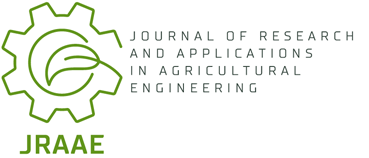Current issue
Online First
Archive
Instructions for Authors
Guide for Authors
Peer Review Policy
Research Ethics Policy
Crossmark Policy
Ghostwriting and Guest Authorship
Copyright
Open Access Policy
Plagiarism
About the Journal
Aim and Scope
Scientific Board
Publisher
Editorial Board
Indexing in Databases
Personal Data Protection
Repository Policy
Contact
ORIGINAL PAPER
Composting of briquetted tobacco dust
Journal of Research and Applications in Agricultural Engineering 2006;51(3):62-66
KEYWORDS
ABSTRACT
This study undertook investigations on the elaboration and determination of the utilization efficiency of briquetted tobacco dust in the composting process using mature compost (with municipal sewage sludge and wheat straw) and fresh municipal aerobic sewage sludge. The objective of performed investigations was to ascertain possibilities of obtain of a stable compost intended for non-industrial purposes and to check up on rate of biodegradation of briquetted tobacco dust characterized by exceptional hardness. The experiment comprised two compost piles and was conducted for five months. The performed studies indicated, that composting of tobacco waste with mature compost and sewage sludge in estimated C:N ratio is advisable alternative of this waste management to till now using methods.
REFERENCES (12)
1.
Piecuch T., Dąbrowski T., Harabin Z., Waluś J. Możliwość i celowość dodatku pyłów tytoniowych o wsadu w procesie kompostowania odpadów komunalnych. Ochrona Powietrza i Problem odpadów 6, s. 200-212, 1997.
2.
Gostkowska K., Szwed A., Wyczółkowski A., Próba kompostowania odpadów tytoniowych. Cz. III Wpływ stosowania szczepionki na rozwój mikroorganizmów i niektóre właściwości chemiczne kompostu z odpadów tytoniowych. Zesz. Probl. Post. Nauk Roln. 437, s. 159-165, 1996.
3.
Hury G., Kiepas - Kokot A. (2002) Wykorzystanie przewodnictwa właściwego do oceny przemian jakościowych w osadach ściekowych podczas kompostowania i wermikompostowania. Zesz. Probl. Post. Nauk Roln. 484, s. 203-209.
4.
POL-EKO-APARATURA S.C. Materiały szkoleniowe: „Praktyczny pomiar przewodnictwa" s. 17-27.
5.
Drieux T. Le compostage a la ferme. Approche techniques et economique. Memoire de DAA, ENSAR., 1999.
6.
Mustin M. Le compost, gestion de la maticre organique. Edycja Francois Dubusc-Paris, 954,1987.
7.
Tiquia S. M., Tam N. E Y., Hodgkiss I. J. Salmonella Elimination during Composting of Spent Pig Litter. Bioresource Technology 63, pp 193-196,1998.
8.
Hassen A, Belguith K, Jedidi N, Cherif A, Cherif M, Boudabous A. Microbial characterization during composting of municipal solid waste. Bioresour Technol 80, pp 217-225, 2001.
9.
Cibis E., Kent C. A, Krzywonos M., Garncarek Z., Garncarek B., Miśkiewicz T. Biodegradation of potato slops from a rural distillery by thermophilic aerobic bacteria. Bioresource Technology 85, pp 57-61, 2002.
10.
Blanc M., Marilley L., Beffa T., Aragno M. Thermophilic bacterial communities in hot composts as revealed by most probable number counts and molecular (16S rDNA) methods. FEMS Microb. Ecol., 28, pp 141-149, 1999.
11.
Iglesias-Jimenez E., Perez-Garcia V. Determination of maturity indices for city refuse compost. Agric., Eco-sys. and Environ., 38, pp 331-343, 1992.
12.
Chanysak V., Kubota H. Carbon/organic nitrogen ratio in water extracts as measure of compost degradation. J. Ferment. Techn., 59(3), pp 215-219, 1981.
Share
RELATED ARTICLE
We process personal data collected when visiting the website. The function of obtaining information about users and their behavior is carried out by voluntarily entered information in forms and saving cookies in end devices. Data, including cookies, are used to provide services, improve the user experience and to analyze the traffic in accordance with the Privacy policy. Data are also collected and processed by Google Analytics tool (more).
You can change cookies settings in your browser. Restricted use of cookies in the browser configuration may affect some functionalities of the website.
You can change cookies settings in your browser. Restricted use of cookies in the browser configuration may affect some functionalities of the website.


